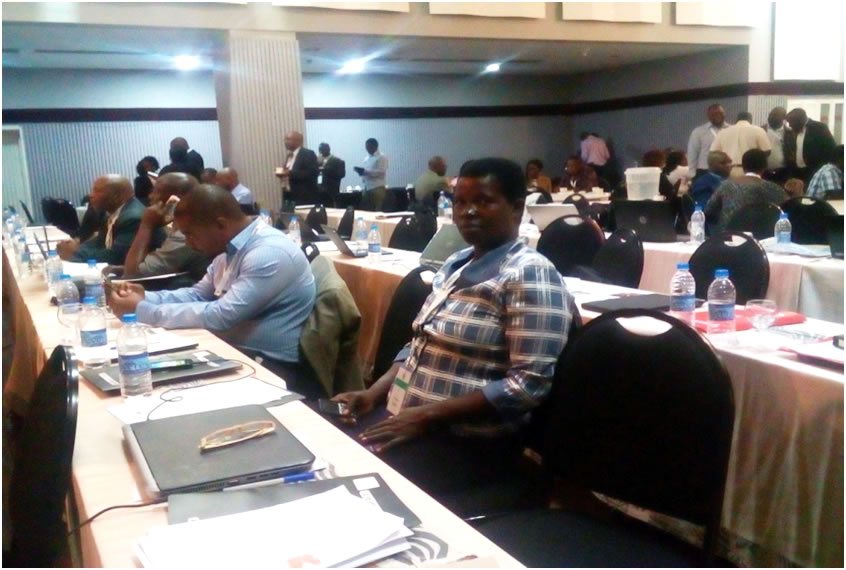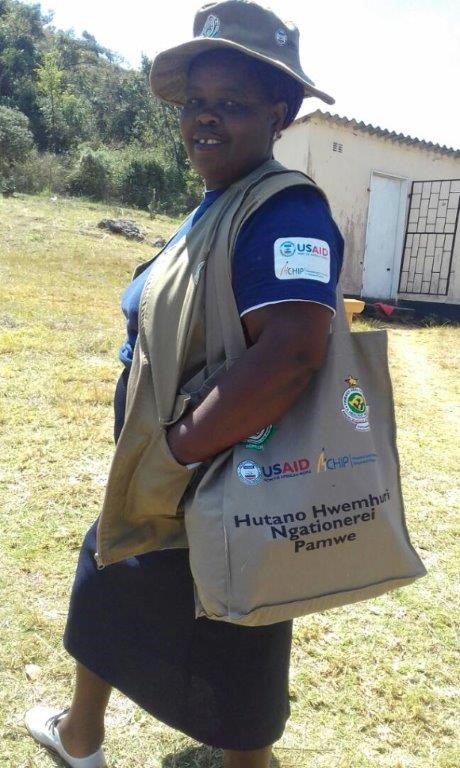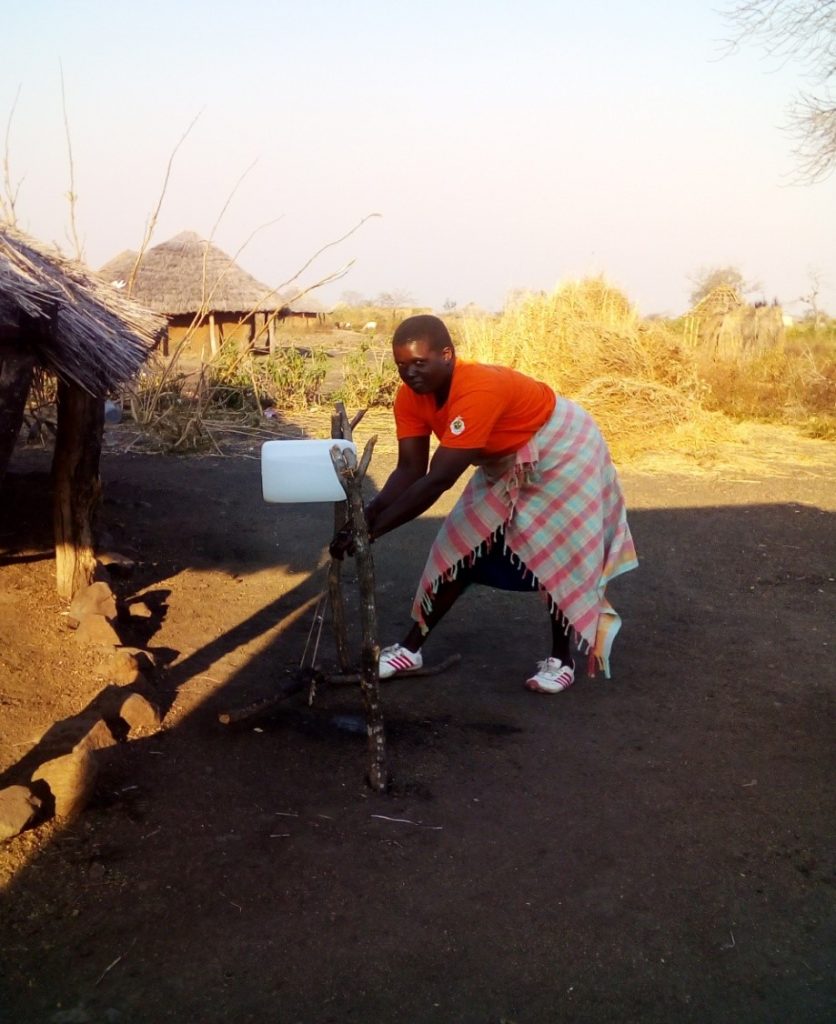Malaria Community Case Management (MCCM) plays a critical role in ensuring communities in Zimbabwe have access to effective malaria treatment. The USAID-funded Maternal and Child Health Integrated Program (MCHIP) has been supporting the Zimbabwean Ministry of Health and Child Care (MOHCC) to train village health workers (VHWs) in MCCM since 2014. With this training and support, VHWs have the knowledge and skills to be able to screen, diagnose (using rapid diagnostic test [RDT] kits), and treat malaria at the community level. In Manicaland Province, VHWs treat a significant number of confirmed malaria cases, around 53 percent. In addition to treating uncomplicated malaria cases, VHWs can also administer an artesunate suppository as pre-referral treatment for severe malaria. This can be a life-saving intervention.
This is the story of a VHW from Chipinge District, Manicaland Province, who saved the life of a 19-month old boy who showed signs of severe malaria:
“I am Mwoyounotsva Ndhlovu, a VHW from Chipinge District in Manicaland Province. I live in a village called Rujeko, a farming community. My village has 435 households and the distance from the nearest clinic (Chinyamukwakwa) is 7.5 kilometers. I was trained as a VHW in 2010, trained in malaria community case management in 2013, and had a refresher course in 2015 when the treatment for malaria changed.
My daily work involves health education on breastfeeding, prevention and treatment of diarrhea, conducting home visits for antenatal and postnatal mothers after delivery, growth monitoring, and giving vitamin A to children under five years. I also give treatment for minor ailments like diarrhea where I give oral rehydration solution and zinc. I also treat for malaria after testing with RDTs and track immunization defaulters as well as HIV/AIDS, tuberculosis, epilepsy, and blood pressure treatment defaulters. The number of malaria cases I see per week varies with the season, ranging from 5 to 15 cases per day during the non-malaria and malaria seasons respectively. Chinyamukwakwa area was in an outbreak this year so the cases were many. All RDT negative cases are referred to the clinic, and other cases like injuries are also referred. I do my RDT in the shed at my home and when it is raining I use my dining room.
On 21 November 2016 in the evening, a mother brought her son to my home because the baby was not well. They arrived at my home around 18:30 hours. The baby, 19 months old, was having a hot body, not able to talk, very sleepy, refusing to eat, and was vomiting everything. I noted that the child had danger signs and needed referral to the clinic. I quickly performed an RDT following all the steps as I was taught. The RDT was positive for malaria. I told the parent that the child had severe malaria. I then explained that I was going to give the child an artesunate suppository before sending them to the clinic. I quickly checked the dosage of artesunate in the module and put on latex gloves. I told the mother to hold the baby and turn him to the side while I inserted the 100 milligrams of the rectal artesunate. I told the parent to hold the buttocks together for 10 minutes while I wrote the referral note. The child was then taken to the clinic with the referral note for further management. The following day I visited the clinic to check on this child and found that his condition was improving and his temperature was coming down from 40.3 degrees Celsius and was now 37.5 degrees Celsius. The child stayed at the clinic for a few days and was discharged by the nurse to complete the course of medicine at home”.

VHW Mwoyounotsva Ndlovu, above, in attendance at the National Annual Malaria Conference in Bulawayo. Photo credit: MCHIP Zimbabwe.


